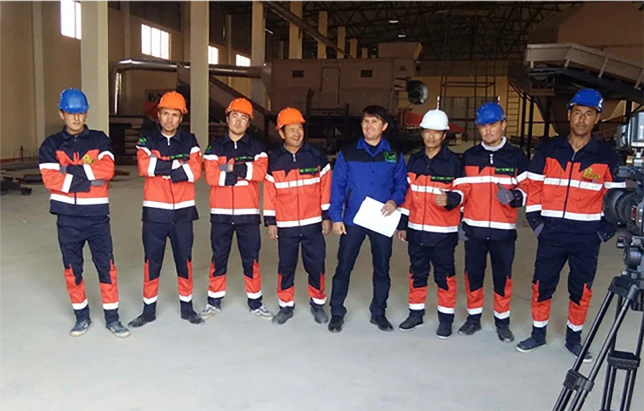

Sep . 06, 2024 04:57 Back to list
Industrial Shredders The Backbone of Waste Management Solutions
In an era where sustainability and environmental consciousness are at the forefront of global initiatives, industrial shredders have emerged as a vital component of waste management solutions. These powerful machines are designed to reduce a variety of materials—ranging from plastic, metal, wood, to electronic waste—into manageable pieces. By doing so, they not only facilitate recycling but also contribute to the efficient disposal of refuse, playing a crucial role in mitigating the impact of waste on our planet.
Industrial shredders operate on a simple principle they break down large volumes of material into smaller, more manageable sizes. This process not only makes transportation easier but also enhances the efficiency of recycling operations. For example, shredded plastic can be more easily melted down and reformed into new products, effectively creating a closed-loop system. By transforming waste into reusable materials, industrial shredders help conserve natural resources and reduce the demand for new raw materials.
The importance of industrial shredders extends to various sectors, notably in manufacturing, construction, and e-waste recycling. In manufacturing environments, shredded materials can be repurposed for new product lines, reducing costs and the environmental footprint associated with producing new materials. In the construction industry, wood and other debris can be processed into mulch or biomass fuel, providing alternative solutions for waste disposal.

Moreover, industrial shredders also play a pivotal role in data destruction, especially for businesses handling sensitive information. High-capacity shredders ensure that confidential documents and electronic devices are irretrievably destroyed, safeguarding against data breaches and ensuring compliance with legal regulations.
When it comes to choosing the right industrial shredder, several factors come into play, including the type of material to be shredded, the volume of waste generated, and the end goal of the shredding operation. Various designs, such as single-shaft, double-shaft, and granulators, cater to different needs and capacities. Businesses must assess their specific requirements to select the most efficient and reliable equipment.
In conclusion, industrial shredders are indispensable tools in modern waste management, offering solutions that align with eco-friendly practices and sustainable resource management. They enable the recycling of materials, promote efficient waste disposal, and ensure data security, all while minimizing the environmental impact associated with waste. As industries continue to prioritize sustainability, the role of industrial shredders will undoubtedly expand, making them essential allies in the quest for a cleaner, greener future.
Latest news
Troubleshooting Common Eddy Separator Problems
NewsJul.04,2025
The Role of Metal Recycling Plants in Circular Economy
NewsJul.04,2025
The Impact of Recycling Line Pickers on Waste Management Costs
NewsJul.04,2025
Safety Features Every Metal Shredder Should Have
NewsJul.04,2025
How Industrial Shredders Improve Waste Management Systems
NewsJul.04,2025
How Cable Granulators Contribute to Sustainable Recycling
NewsJul.04,2025